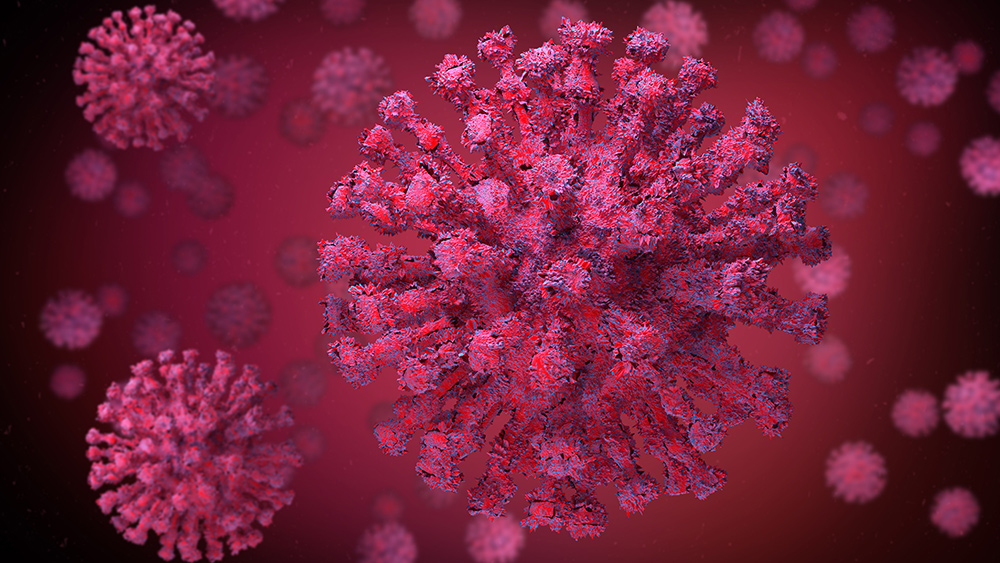Russia developing coronavirus antidote with a reported 99% efficacy rate
01/07/2021 / By Ramon Tomey

Russia has announced that it has developed an “antidote” against Wuhan coronavirus (COVID-19) infections. The country’s medical regulator touted the new drug’s efficacy rate of “more than 99 percent” based on previous studies.
If clinical trials are successful, Russia’s new drug will be the first etiotropic COVID-19 medication – a treatment that directly targets the cause of a disease.
The Russian Federal Medical-Biological Agency (FMBA) said Dec. 30 that its potential anti-COVID drug would become the world’s first direct-acting antiviral antidote. FMBA Head Veronika Skvortsova remarked: “This is the first etiotropic drug that directly affects the virus. In fact, this is an antidote for coronavirus infection.”
Skvortsova informed Russian Prime Minister Mikhail Mishustin that pre-clinical studies on the drug have been completed. The same studies have shown the antidote to be “completely safe” and “highly efficient.” She also told Mishustin that the FMBA is ready to apply for further permission to test out the drug.
“If clinical trials confirm the effectiveness of this drug – it will be the first safe, effective [and] direct-acting antiviral drug that has no analogs in the world,” Skvortsova commented. The drug has registered a more than 99 percent efficacy rate in clinical trials.
Aside from this new coronavirus antidote, the FMBA is also looking at a separate drug for treating more severe COVID-19 cases. The rheumatoid arthritis drug olokizumab, as retooled by Russian drugmaker R-Pharm, is said to be able to address cytokine storms in the body caused by SARS-CoV-2. A cytokine storm or hypercytokinemia is an immune response triggered by an overload of the body’s immune system to fight off the virus. Cytokine storms lead to body tissue damage and have been thought to cause the majority of COVID-19 fatalities.

R-Pharm Chief Medical Officer Mikhail Samsonov told Reuters back in October that the results of a clinical trial on olokizumab are set to be published. He also remarked that the drug has been included in national guidelines for treating COVID-19 patients – with promising results. “What we saw in the clinical trial and in clinical practice is that when we inject … olokizumab [to patients], within a few hours – the temperature is going down [and] oxygenation is growing,” Samsonov elaborated.
The two Russian drugs join the list of treatments addressing Wuhan coronavirus infections
The two drugs – olokizumab and the etiotropic antidote – add to the growing number of medications that show promise against Wuhan coronavirus infections.
During the initial months of the pandemic, the anti-malaria drug hydroxychloroquine (HCQ) was found to be effective in fighting COVID-19. U.S. President Donald Trump even endorsed the use of the drug for treating COVID-19, which led to the U.S. Food and Drug Administration (FDA) approving its use in March 2020.
However, the FDA revoked its initial authorization for HCQ in June 2020 after finding it “unlikely to be effective in treating COVID-19.” The regulatory agency cited “serious cardiac adverse effects and other potential serious side effects” with the use of HCQ as grounds for rescinding the drug’s approval.
The anti-parasitic oral drug ivermectin has also been found to be a promising COVID-19 medication. Originally used against parasitic worms, it initially saw use in Latin America to address COVID-19 symptoms. The Epoch Times reported in mid-December that Florida-based pulmonologist Dr. Jean-Jacques Ratjer was one of the first doctors to prescribe ivermectin for severe COVID-19 patients.
Ratjer said that ivermectin, included in the World Health Organization‘s List of Essential Medicines, was soon adopted by some Broward County hospitals as part of their COVID-19 treatment protocol. He added that more than seven months later, “the success rate of the ivermectin-based protocol is now far superior to what it was in its early days.”
Aside from HCQ and ivermectin, antibody treatments have also been touted as an effective treatment for COVID-19. Banking on the FDA’s approval of convalescent plasma in August 2020, some pharmaceutical firms have focused on developing these alternatives for those who cannot tolerate vaccines well.
The polyclonal antibody cocktail developed by Regeneron saw initial use as a treatment when Trump contracted the coronavirus in October 2020. It was among the treatments administered to the president during his hospitalization at the Walter Reed National Military Medical Center. AstraZeneca commenced advanced trials on its antibody treatment in October, while Eli Lilly’s version has obtained emergency use approval from the FDA.
Visit Medicine.news to find out more about treatments against Wuhan coronavirus infection.
Sources include:
Tagged Under: coronavirus antidote, COVID-19 antidote, COVID-19 medications, covid-19 pandemic, covid-19 treatment, cytokine storm, etiotropic medication, Federal Medical-Biological Agency, olokizumab, R-Pharm, Russia, Wuhan coronavirus




















